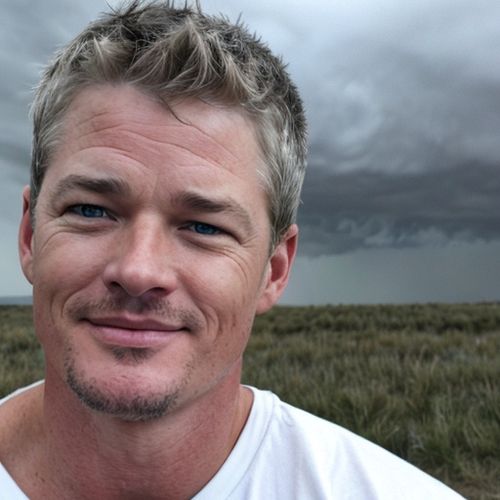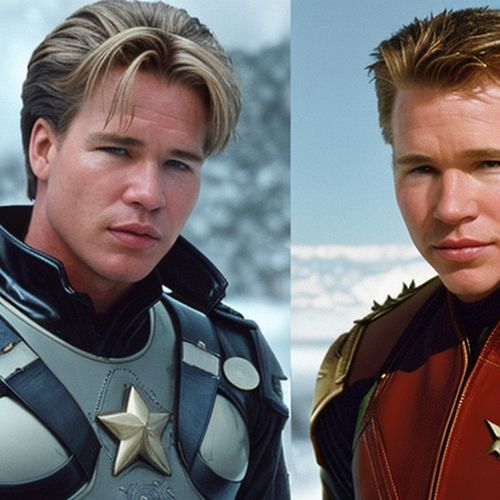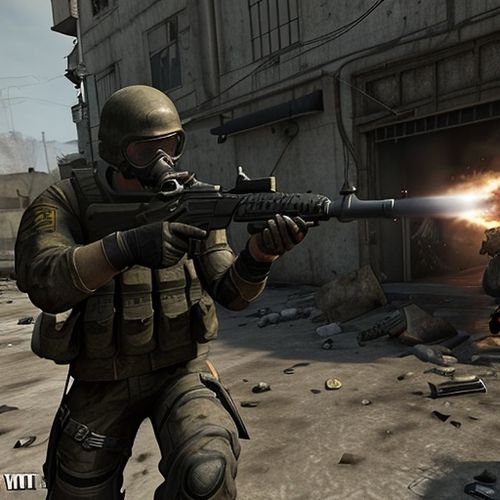In the labyrinthine tapestry of life, where threads of chance and consequence intertwine, the story of Jillian Shriner emerges as a stark reminder of the unpredictable and often tumultuous nature of existence. On a Tuesday, in the East LA neighborhood of Eagle Rock, a seemingly ordinary day was shattered by the deafening report of gunfire, forever altering the trajectory of Jillian Shriner's life and thrusting her into the blinding spotlight of public scrutiny.
Jillian Shriner, the wife of Weezer bassist Scott Shriner, found herself at the epicenter of a chaotic and perilous encounter with the Los Angeles Police Department. The incident, which unfolded with the rapidity and ferocity of a storm, began as a routine police operation. Officers were on the trail of a suspect involved in an unrelated hit-and-run, a common enough scenario in the vast mosaic of urban life. Yet, as they navigated the labyrinthine streets of Eagle Rock, their path collided with Jillian Shriner's, setting off a chain of events that would reverberate far beyond the confines of that neighborhood.
According to police reports, officers observed a woman in a neighboring residence armed with a handgun. In the tense and fraught atmosphere of law enforcement operations, the presence of a firearm is a clarion call to vigilance. The woman, later identified as Jillian Shriner, became the focal point of a high-stakes confrontation. The LAPD, trained in the art of de-escalation and the science of crowd control, issued repeated commands for Shriner to drop her weapon. Yet, in a move that defied both reason and the imperatives of safety, Shriner refused to comply. Instead, she raised the weapon, pointing it directly at the officers. In that moment, the thin blue line of law enforcement was crossed, and the situation escalated from a tense standoff to a deadly encounter.
The Officer-Involved Shooting that ensued was a tragic and inevitable consequence of Shriner's actions. Struck by gunfire, Shriner fled into her residence, seeking refuge within the walls of her home. Yet, the reach of the law is long and unyielding. She later exited the home and was taken into custody, her fate hanging in the balance as the wheels of justice began to turn.
In the aftermath of the incident, the LAPD conducted a thorough investigation, uncovering evidence that painted a damning picture. Shell casings and video footage, the silent witnesses of the confrontation, revealed that Shriner had repeatedly ignored police commands to disarm. Moreover, she had fired her weapon at the officers, a brazen and perilous act that placed the lives of law enforcement personnel in jeopardy. A 9 mm handgun, the instrument of the conflict, was recovered from within the home, a tangible reminder of the danger that had unfolded.
Jillian Shriner, who had been struck by gunfire, was transported to a local hospital by Los Angeles Fire Department paramedics. There, she received treatment for a non-life-threatening gunshot wound, a testament to the skill and professionalism of the medical responders. In a stroke of fortune, no officers or other community members were injured during the incident, a fact that underscores the precision and restraint exercised by the LAPD in the face of a perilous situation.
As the dust settled and the immediate danger receded, the question of charges loomed large. While Shriner had initially been booked for attempted murder of a peace officer, the final decision on potential charges rested with the prosecutors. As of Thursday, no decision had been made, leaving Shriner's future shrouded in uncertainty. The Associated Press reported that she had been released after posting a $1 million bond, a sum that speaks to the gravity of the situation and the high stakes involved.
In the midst of this maelstrom of events, the personal details of Jillian Shriner's life came to light, adding layers of complexity to an already convoluted narrative. Last month, Shriner had shared a poignant post on her verified Instagram account, disclosing that she was being treated for cancer and had undergone surgery. Her words, filled with gratitude for the medical team at Glendale Advent Hospital, painted a picture of resilience and fortitude in the face of illness. "The incredible oncology team who pulled me through a complicated operation without a hitch," she wrote, a testament to the strength of the human spirit.
This revelation cast the events of Tuesday in a different light. Here was a woman already grappling with the fragility of life, now thrust into a situation that could have far-reaching consequences. The juxtaposition of her battle with cancer and the confrontation with law enforcement serves as a stark reminder of the multifaceted nature of human experience. Life, it seems, is a tapestry woven from threads of joy and sorrow, triumph and tragedy, and sometimes, the threads become tangled in ways that defy comprehension.
Jillian Shriner's background adds another layer to this intricate narrative. As the author of four books, including the best-selling 2010 memoir, "Some Girls: My Life in a Harem," she has long been a figure of intrigue and fascination. Her memoir, which detailed her experience living in the harem of Prince Jefri Bolkiah of Brunei, offered readers a glimpse into a world of opulence and intrigue. It was a story that captivated audiences, blending elements of adventure, romance, and cultural exploration. Yet, in the wake of the shooting, the focus shifted from her literary accomplishments to the harrowing events that had unfolded in Eagle Rock.
Her marriage to Scott Shriner, the bassist for the rock band Weezer, further complicates the narrative. The couple, united in matrimony since 2005, has navigated the challenges of balancing personal and professional lives. Weezer, a band with a dedicated fan base and a legacy of memorable performances, found itself thrust into the spotlight through this incident. The band's recent addition to the Coachella Festival lineup, a prestigious event in the world of music, seemed almost incongruous with the turmoil unfolding in Jillian Shriner's life. The juxtaposition of the band's triumph and the personal crisis serves as a poignant reminder of the duality of existence.
In the days following the incident, Scott Shriner offered a brief but telling comment to the New York Post. "She's alright, thank you for asking," he said, his words a mixture of relief and stoicism. "See you at Coachella!" The message, while brief, conveyed a sense of resilience and a determination to move forward, a sentiment echoed by many who find themselves in the eye of the storm.
As the world watches and waits for the legal proceedings to unfold, the story of Jillian Shriner serves as a powerful reminder of the complexities of human life. It is a tale of chance and consequence, of resilience and fragility, and of the unpredictable paths that fate can carve. In the end, it is a story that compels us to reflect on the nature of justice, the power of redemption, and the enduring strength of the human spirit.

By Benjamin Evans/Apr 16, 2025

By Megan Clark/Apr 16, 2025

By Grace Cox/Apr 16, 2025

By David Anderson/Apr 16, 2025

By Amanda Phillips/Apr 16, 2025

By Christopher Harris/Apr 16, 2025

By Emily Johnson/Apr 16, 2025

By Natalie Campbell/Apr 16, 2025

By Christopher Harris/Apr 16, 2025

By Grace Cox/Apr 16, 2025

By Natalie Campbell/Apr 9, 2025

By Megan Clark/Apr 9, 2025

By Sophia Lewis/Apr 9, 2025

By Elizabeth Taylor/Apr 9, 2025

By Amanda Phillips/Apr 9, 2025

By Megan Clark/Apr 9, 2025

By Olivia Reed/Apr 9, 2025

By Jessica Lee/Apr 9, 2025

By Amanda Phillips/Apr 9, 2025

By Thomas Roberts/Apr 9, 2025